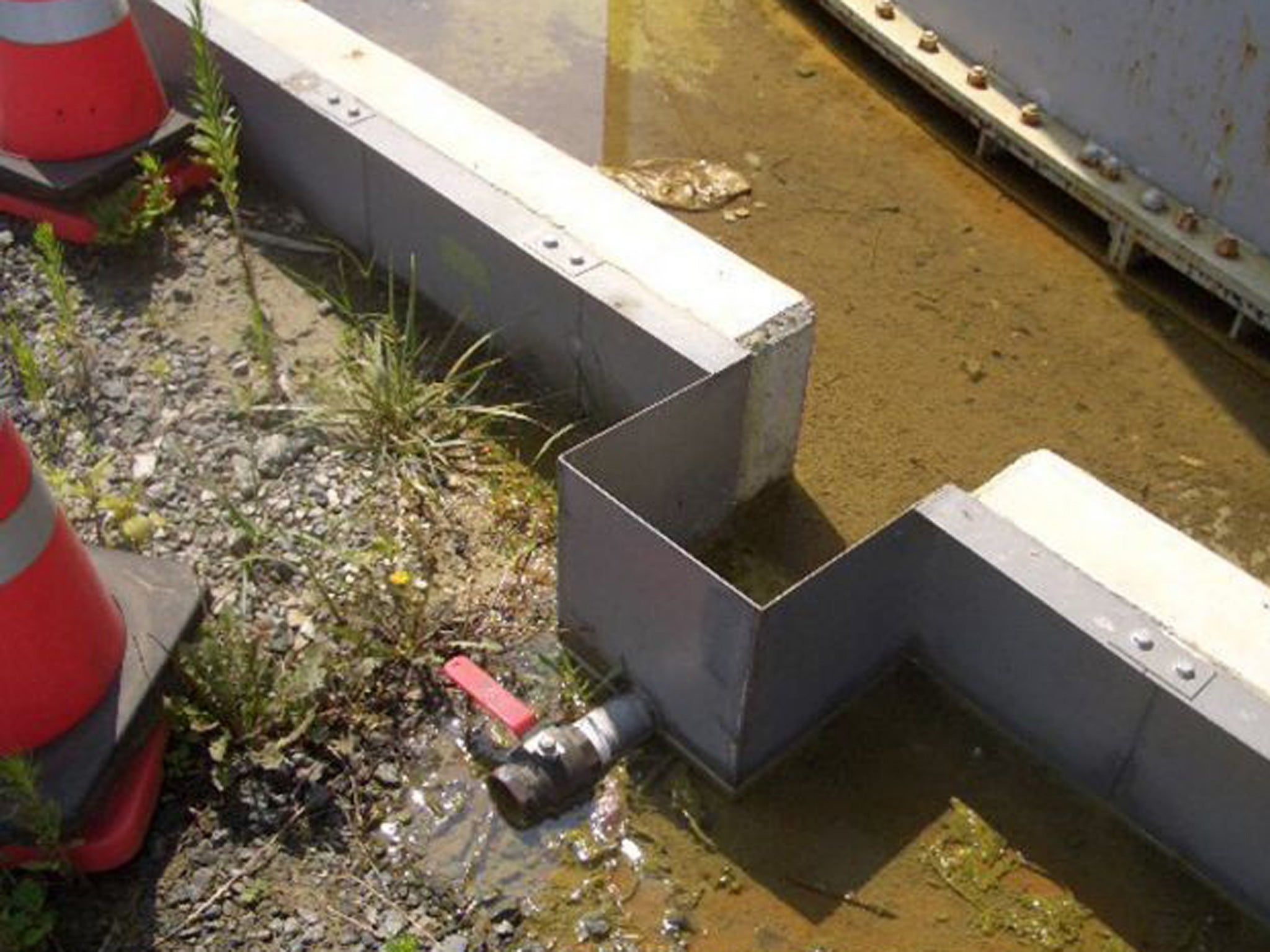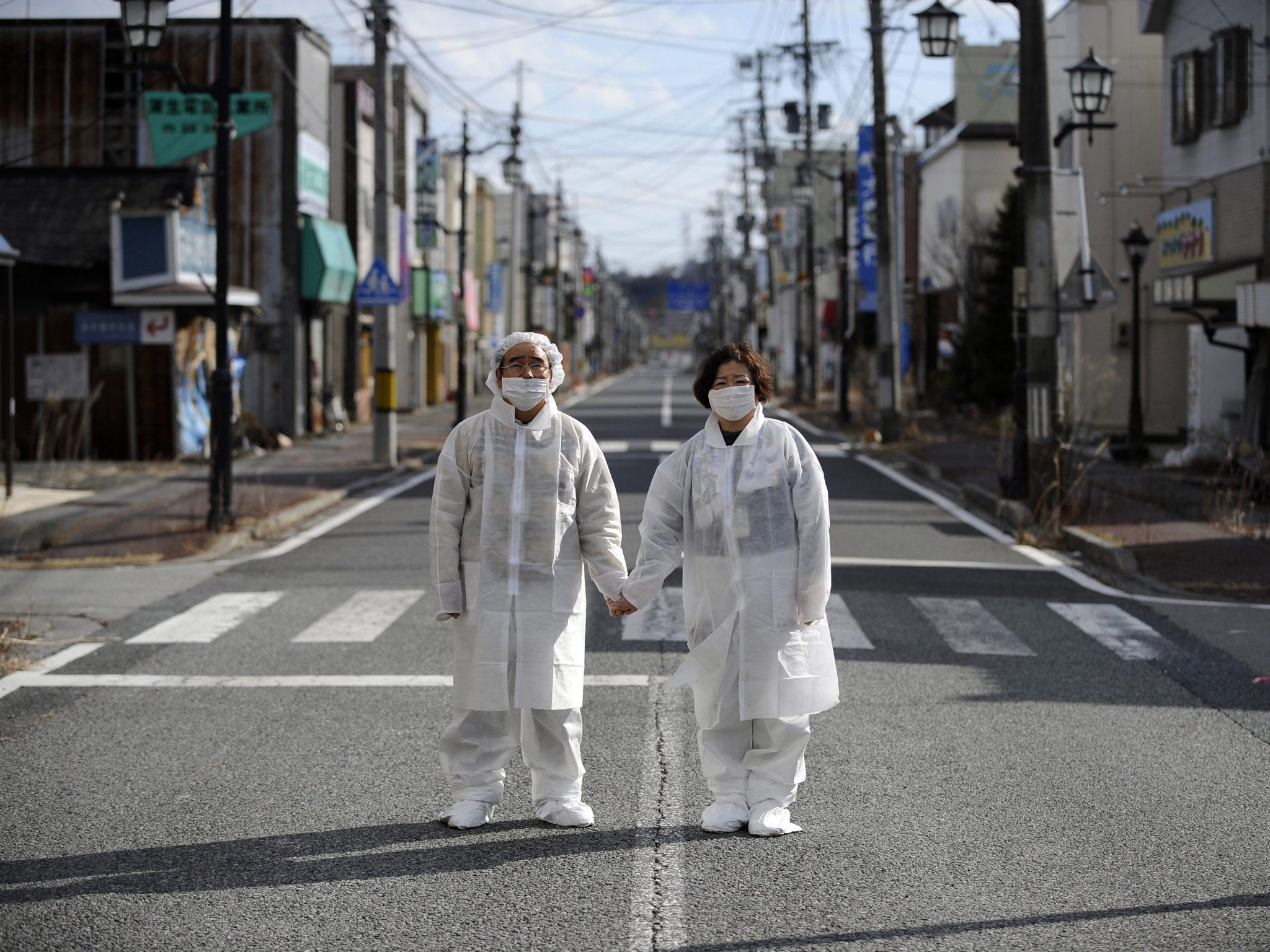Nuclear crisis: Fukushima threat level raised to 'serious' as plant leaks 300 tonnes of radioactive water from storage tank
Masked workers found puddles with radiation readings of 100 millisieverts an hour – enough to induce radiation sickness in less than 12 hours

Japanese authorities have raised the threat level of a toxic water leak at the stricken Fukushima nuclear plant, describing it as a level three "serious incident".
The operator of the ruined Fukushima Daiichi nuclear plant has admitted that highly toxic water is leaking from a storage tank, the latest problem to plague the immensely complex cleanup.
Tokyo Electric Power Co (Tepco) says the leak of around 300 tons is the most serious since a huge earthquake and tsunami knocked out power to the plant’s cooling system in March 2011.
The international severity scale ranges from 0-7, seven being the most dangerous.
Masked workers found puddles with radiation readings of 100 millisieverts an hour near makeshift tanks that store contaminated water – enough to induce radiation sickness in less than 12 hours.
“This means you are exposed to the level of radiation in an hour that a nuclear plant worker is allowed to be exposed to in five years,” a spokesman for the embattled utility said.
The news follows the recent admission that the complex is leaking 300 tons of radioactive water per day into the Pacific. Japan’s Nuclear Regulation Authority (NRA) said it could not rule out the possibility that the leak has been going on since the disaster started 30 months ago. Tepco had denied the leak for months.
Last week, the utility said a team of workers had been accidentally sprayed with contaminated water.
Work at the plant has been dogged by power failures and technical problems that have underlined the difficulties of cleaning up from the world’s worst nuclear disaster since the 1986 Chernobyl accident.
“The situation is getting worse,” Michiaki Furukawa, a nuclear chemist told the Reuters news agency.
Many experts believe Japan’s government continues to underestimate the cost and complexity of the decommissioning, and that Tepco has been systematically covering up problems.
Tepco has insisted that the latest leak had not reached the ocean, about half a kilometer away. But it said it had yet to pinpoint exactly where the water is coming from and says only four tons has been recovered and returned to a sealed tank.
An NRA official told reporters there had been no detectable rise in radiation levels outside the plant complex. Engineers are pouring hundreds of tons of water every day onto melted uranium fuel rods at the plant to keep them from overheating. The toxic water is stored in over 1000 huge on-site tanks, awaiting decontamination. The joints of the makeshift tanks are sealed with plastic and prone to leaks.

The string of setbacks and growing public alarm forced the government last week to promise it would get more directly involved in the effort to dismantle the six-reactor plant. “It is an urgent problem,” Prime Minister Shinzo Abe said, promising a fresh government strategy to end the crisis.
Tepco engineers are trying to build an artificial underground wall between the plant and the Pacific in a bid to stop radioactive groundwater from reaching the sea.
The leaks have become a diplomatic issue: South Korea has again publicly expressed concern this week about the impact of the contamination on nearby fishing stocks.
The Chinese foreign ministry on Wednesday said it was "shocked" that the plant was still leaking radioactive water.
Join our commenting forum
Join thought-provoking conversations, follow other Independent readers and see their replies
Comments